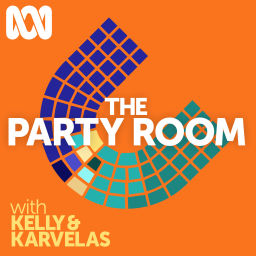
by ABC listen
In a world marked by wicked social problems, The Minefield helps you negotiate the ethical dilemmas, contradictory claims and unacknowledged complicities of modern life.
Language
🇺🇲
Publishing Since
11/6/2019
Email Addresses
0 available
Phone Numbers
0 available

April 16, 2025
If there is ever a time when politicians should be able to expect a fair share of the public’s attention, it’s during an election campaign. After all, this triennial event is when they can demonstrate to the Australian public that they’ve been attentive to their aspirations and concerns for the future, and have developed a series of policies able to address those hopes and fears. And yet Donald Trump’s reckless bluster and punitive tariffs have sucked most of the air out of Australia’s federal election, and the unpopularity of the US President has succeeded in blowing the campaign of at least one political party off course. Trump may well be unavoidable, but is the attention he garners inevitable? Are the differences between US-style politics and Australia’s well-functioning democracy now so vast that we can better appreciate the preciousness of our own rather more modest democratic way of life?

April 9, 2025
This is the second of two episodes recorded in front of a live audience as part of a special “Week with Students”, a collaboration between Radio National and ABC Education. Over a short period of time, AI has become pervasive. Immensely powerful platforms have placed artificial intelligence at our fingertips, and more than two-thirds of Australian students admit to using AI chatbots like OpenAI’s ChatGPT and Microsoft’s Copilot. But as with any technology, alongside the convenience and new capabilities come certain risks and unforeseen consequences. The debate is raging over what it would take to ensure that AI’s power can be made to serve the common good. Is education and greater technological literacy part of the solution?

April 5, 2025
This is the first of two episodes recorded in front of a live audience as part of a special “Week with Students”, a collaboration between Radio National and ABC Education. Of the three great dystopian novels published on either side of the Second World War — Aldous Huxley’s “Brave New World” (1931), George Orwell’s “Nineteen Eighty-Four” (1949) and Ray Bradbury’s “Fahrenheit 451” (1953) — it is Bradbury’s vision of a future without books that can lay legitimate claim to being the most prescient. It is certainly the most relevant to us. “Fahrenheit 451” is, ultimately, a story about education. It tracks the moral awakening of an unthinking, drone-like fireman named Guy Montag, whose occupation it is not to protect properties against flames but to incinerate books. And yet the disappearance of books did not happen, in the first instance, because of state action. It all started with the steady reduction of the size of texts and a rapid increase in the rate of publication. (Bradbury might as well have been describing social media.) After that, it didn’t take much for books to be permitted to disappear altogether due to their irrelevance to the way people live. Why would you need censorship when distraction and disinterest will do the trick? But after a series of encounters with witnesses, teachers and guides, Montag is led out of darkness and into enlightenment; away from the flames that burn and toward the fire that gives warmth, companionship, sociability; away from distraction and inner-emptiness and toward contemplation, curiosity and wonder.

ABC listen

ABC listen

ABC listen

ABC listen

ABC listen

ABC listen

ABC listen

ABC listen

ABC listen

ABC listen

The Guardian

ABC listen

ABC listen

The Australian National University

ABC listen
Pod Engine is not affiliated with, endorsed by, or officially connected with any of the podcasts displayed on this platform. We operate independently as a podcast discovery and analytics service.
All podcast artwork, thumbnails, and content displayed on this page are the property of their respective owners and are protected by applicable copyright laws. This includes, but is not limited to, podcast cover art, episode artwork, show descriptions, episode titles, transcripts, audio snippets, and any other content originating from the podcast creators or their licensors.
We display this content under fair use principles and/or implied license for the purpose of podcast discovery, information, and commentary. We make no claim of ownership over any podcast content, artwork, or related materials shown on this platform. All trademarks, service marks, and trade names are the property of their respective owners.
While we strive to ensure all content usage is properly authorized, if you are a rights holder and believe your content is being used inappropriately or without proper authorization, please contact us immediately at [email protected] for prompt review and appropriate action, which may include content removal or proper attribution.
By accessing and using this platform, you acknowledge and agree to respect all applicable copyright laws and intellectual property rights of content owners. Any unauthorized reproduction, distribution, or commercial use of the content displayed on this platform is strictly prohibited.